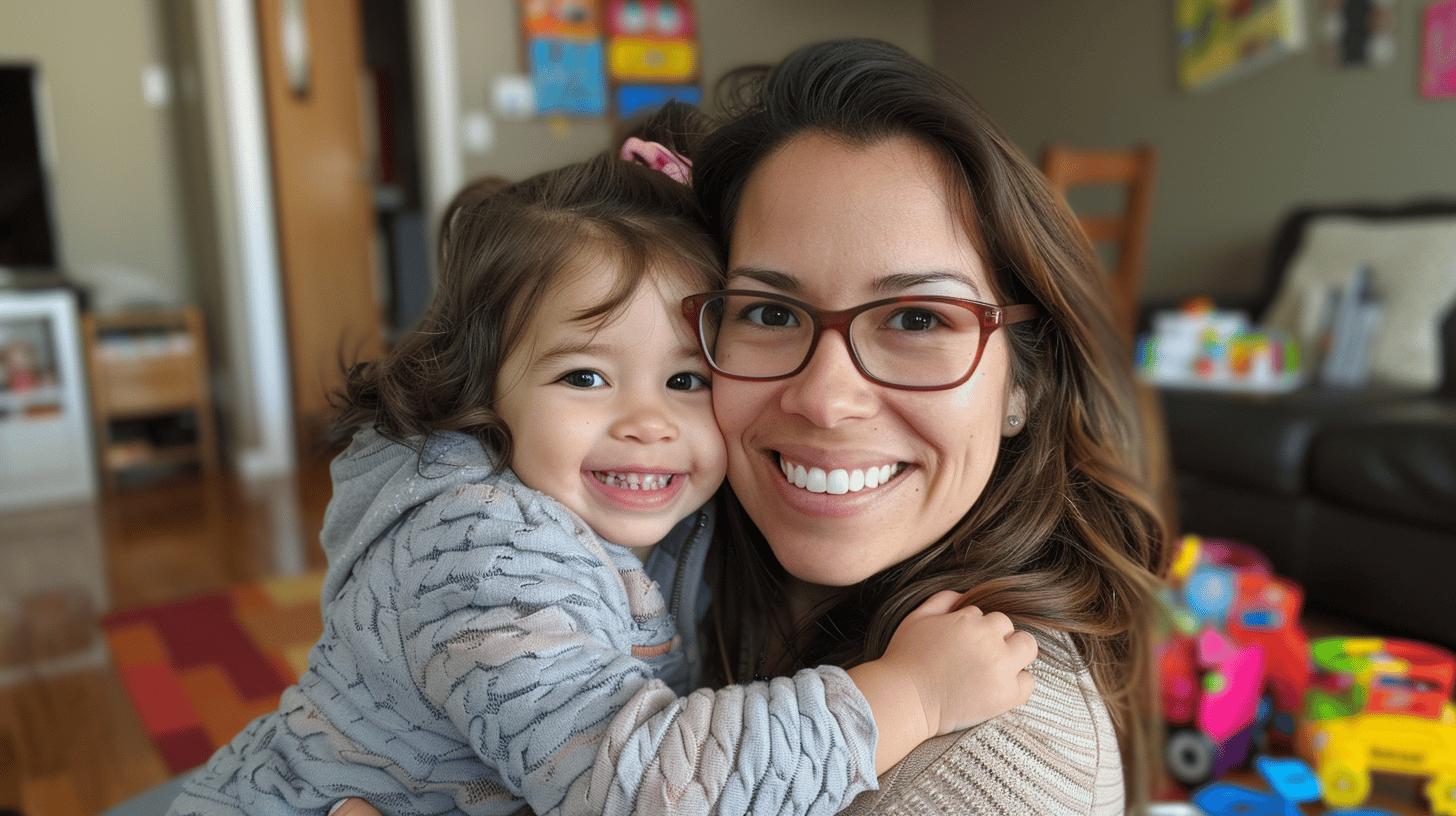What is the ultimate goal of parenting? Is it to raise obedient children or to nurture independent thinkers? The truth might surprise you. Beyond teaching manners and ensuring academic success, the primary goal of parenting is to nurture emotional well-being. When parents focus on their children’s emotional health, they foster a sense of security and self-worth that lays the foundation for all other aspects of development. Read on to discover why emotional well-being is crucial and how it shapes every other parenting objective.
Understanding the Ultimate Goal of Parenting
Parenting’s primary goals include fostering emotional well-being, promoting independence, creating a safe environment, and building strong relationships. Emotional well-being is crucial for developing a sense of security and self-worth in children. By promoting independence, parents help build their child’s confidence and self-reliance, preparing them for the challenges of adulthood.
These goals are essential for a child’s holistic development. A safe environment ensures that children can explore and learn without undue risk, while strong relationships within the family nurture trust and communication. Together, these elements create a nurturing and supportive framework for children to thrive.
5 Key Ultimate Goals of Parenting:
- Fostering emotional well-being
- Promoting independence
- Creating a safe environment
- Building strong relationships
- Encouraging lifelong learning
Fostering Emotional Well-Being in Children

Emotional well-being is a crucial parenting objective as it helps children develop a sense of security, self-worth, and happiness. A child who feels emotionally supported is more likely to thrive academically, socially, and physically. Ensuring emotional well-being involves creating an environment where children can express and manage their feelings.
Practical Strategies for Fostering Emotional Well-Being
Creating a supportive environment is foundational for nurturing emotional well-being. Children need to feel safe and understood. This involves active listening, validating their feelings, and providing consistent support.
Social-emotional learning (SEL) is another key component. SEL programs teach children skills like empathy, resilience, and effective communication. These skills help children build healthy relationships and navigate social complexities.
Effective discipline strategies that avoid yelling and harsh punishment can also promote emotional growth. Using positive reinforcement and setting clear, consistent boundaries encourages good behavior while maintaining a child's self-esteem.
| Strategy | Description |
|---|---|
| Creating a Supportive Environment | Active listening, validating feelings, and providing consistent support. |
| Social-Emotional Learning (SEL) | Teaching skills like empathy, resilience, and effective communication. |
| Positive Reinforcement | Encouraging good behavior through rewards and praise. |
| Setting Clear Boundaries | Maintaining consistent rules and consequences without harsh punishment. |
Teaching Essential Life Skills
Teaching life skills is vital for a child's development. These skills, including practical tasks, social skills, and problem-solving abilities, prepare children for real-world challenges. By mastering these skills, children gain the confidence and competence needed to navigate various situations throughout life. They also become more self-reliant and better equipped to handle responsibilities.
Categories of Life Skills
Practical Tasks
Practical tasks are everyday activities that children need to manage independently. These tasks teach responsibility and self-sufficiency.
- Cooking
- Cleaning
- Budgeting
Social Skills
Social skills are essential for effective communication and building healthy relationships. They help children interact positively with others and understand social cues.
- Communication
- Empathy
- Conflict resolution
Problem-Solving Abilities
Problem-solving abilities enable children to think critically and make informed decisions. These skills are crucial for overcoming challenges and achieving goals.
- Critical thinking
- Decision-making
- Creativity
Promoting Independence in Parenting

Promoting independence is crucial for building a child's confidence and self-reliance. When children learn to be self-sufficient, they develop the skills needed to face life's challenges and grow into capable adults. Encouraging independence is a key aspect of effective parenting.
Parents can promote independence in daily life through practical tasks and decision-making opportunities. For instance, assigning age-appropriate chores teaches responsibility and practical skills. Allowing children to make choices, such as picking their clothes or planning a weekend activity, fosters decision-making abilities. These small steps help children understand the importance of their contributions and build their confidence.
The long-term benefits of fostering independence are significant. Children who develop self-reliance are better prepared for adulthood. They are equipped with problem-solving skills and the ability to handle responsibilities on their own. This foundation of independence ultimately leads to a smoother transition into adulthood, where they can navigate life's complexities with greater ease.
Creating a Safe Environment for Children
Creating a safe environment for children is a core parenting responsibility. Physical safety involves childproofing the home to prevent accidents. This includes securing furniture, covering electrical outlets, and ensuring safe spaces for play. By minimizing hazards, parents allow children to explore and learn without undue risk, fostering a sense of security.
Emotional safety is equally important. A supportive environment where children feel heard and valued promotes their emotional well-being. Open communication is key; children should feel comfortable expressing their feelings and concerns. This emotional safety net helps build trust and strengthens the parent-child relationship.
5 Tips for Creating a Safe Environment:
- Childproof the home by securing furniture and covering electrical outlets.
- Create designated safe play areas.
- Maintain open lines of communication with your children.
- Validate and acknowledge your child’s feelings.
- Set clear and consistent boundaries.
Building Strong, Healthy Relationships Within the Family

Strong, healthy relationships within the family are essential for a child's emotional and social development. These relationships are built on trust, respect, and open communication. When family members feel connected and supported, it fosters a nurturing environment where children can thrive.
Actionable Strategies for Building Strong Relationships
Building trust within the family is foundational. Trust-building activities can include spending quality time together, being reliable, and showing empathy. These actions help children feel secure and valued.
Respect and open communication are equally crucial. Teaching children to respect others' opinions and feelings promotes a positive family dynamic. Encouraging open dialogue ensures that everyone feels heard and understood, strengthening family bonds.
Effective co-parenting practices also play a significant role. Co-parents who work together harmoniously create a stable environment for their children. This includes consistent discipline strategies, shared responsibilities, and mutual support.
| Strategy | Benefit |
|---|---|
| Trust-Building Activities | Creates a sense of security and value. |
| Respect and Open Communication | Promotes understanding and positive dynamics. |
| Effective Co-Parenting | Provides stability and consistent discipline. |
| Quality Family Time | Strengthens bonds and fosters connection. |
Final Words
Understanding the goals of parenting encompasses supporting emotional well-being, promoting independence, ensuring safety, and fostering strong relationships. These elements provide a well-rounded foundation for a child's growth.
Emphasizing emotional well-being nurtures resilience and empathy. Teaching essential life skills prepares children for real-world challenges. Promoting independence builds confidence, and creating a safe environment allows for secure exploration.
By focusing on these goals, parents can feel confident in their ability to raise healthy, happy children. Each step in this journey is crucial for their holistic development.
Enjoy every moment of parenting. Your efforts make a lasting impact.
FAQ
What is the goal of parenting Catholic?
Parenting aims to raise children with strong faith, moral values, and respect for others.
Why is parenting important?
Parenting is crucial for children's development, providing emotional support, guidance, and safety.
What is parenting?
Parenting involves nurturing and guiding children to grow into independent, well-adjusted adults.
What is the main goal of parents?
The main goal of parents is to ensure their children become happy, healthy, and independent individuals.
What is the universal goal of parenting?
The universal goal of parenting is to support children's emotional well-being, promote independence, and create a safe environment.
What is the true purpose of parenting?
The true purpose of parenting is to nurture, educate, and prepare children for adulthood.
What is good parenting?
Good parenting involves providing love, support, and guidance to help children develop into responsible adults.
What are parenting styles?
Parenting styles are approaches to raising children, including authoritative, authoritarian, permissive, and uninvolved methods.
What does parenting goals mean?
Parenting goals refer to the desired outcomes parents aim to achieve in their children's growth and development.


